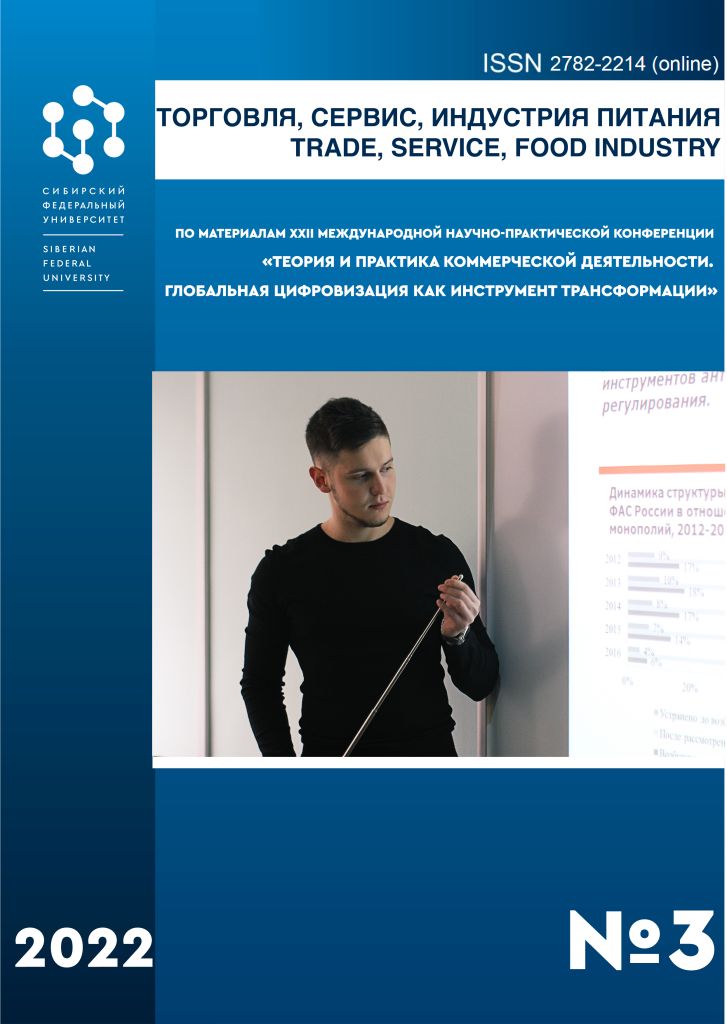Donetsk, Donetsk People's Republic
UDC 331.1
The article considers the essential and content characteristics of the definition of "motivation", gives its author's definition, the distinctive feature of which is the consideration of motivation as a combination of internal motives and external influences that encourage a person to certain actions and deeds aimed at solving specific problems that contribute to the achievement of goals. . The institutional-evolutionary approach to determining the motives for recruiting to work has been scientifically substantiated. The scientific and practical approach to the creation of a motivation system in educational structures is considered; the factors hindering the implementation of the motivation system for personnel engaged in educational activities are identified. It has been proved that it is advisable to consider self-realization as the main motivational component of stimulating the personnel of the educational sphere. A scientific and practical approach to stimulating personnel using different types of motivation is proposed: through external influences on a person and through the formation of a certain motivational structure of a person. A structural-functional analysis of the motives of educational activity was carried out. The role of attitude is considered as a readiness formed in a person for a certain behavior, a positive or negative response to events and facts. A scientific and practical approach to the use of the psychological concept of the motivational mechanism of educational activity, including the cognitive needs of the employee, his interests, and individual typological features, is substantiated. A systematic analysis of the motivators of educational activity was carried out, as a result of which the dominant motivator was singled out - “the desire for achievements”; it is substantiated that achievement motivation is an effective stimulator of educational activity activation. The relationship between achievement motives and the employee's emotional state is substantiated: the higher the level of development of the achievement motive, the more likely it is that the employee's activity will be affected by a certain emotional state that arises when unforeseen obstacles appear on the way to achieving the set goal.
motivation, stimulation, educational activity, motive; motivators, staff
1. Kardashov, V. V. (2019). Personnel motivation: theory and practice. Man and Labor. 10. 47-48.
2. Lyubitskaya, V. A., Borodin, V. A. (2014). Development of motivation of personnel on the basis of individualization of incentive tools. Barnaul : AltSTU, 155 p.
3. Heckhausen, H. (2013). Motivation and activity. M. : Pedagogy, 800 p.
4. Maslow, A. (2014). Motivation and personality. M.; St. Petersburg. : Eurasia, 478 p.
5. Balabanova, L. V., Sarda, E. V. (2017). Investigation of factors of job satisfaction in the process of personnel loyalty management. Enterprise strategy in the context of increasing its competitiveness. 6. 146-150.
6. Kondaurova, I. A., Gemmerling, V. A. (2019). Regulation of social and labor relations as a basis for the development of human resources of the Donetsk People's Republic. Bulletin of DonNU. Ser. V. Economics and Law. 2. 149-155.
7. Lebedenko, E. A., Khmelnitskaya, E. A. (2017). Assessment of qualitative parameters of the labor potential of the enterprise. The strategy of the enterprise in the context of increasing its competitiveness. 5. 112-115.
8. Lukashova, M. A. (2016). Strategic personnel management taking into account motivation in a crisis economy. The strategy of the enterprise in the context of increasing its competitiveness. 5(5). Vol.2. 183-186.
9. Stepanova, S. M., Maltseva, E. S., Rodermel, T. A. (2019). On some aspects of creating a motivational mechanism in work. Economic sciences. Surgut. 2. 87-94.
10. Bazhenov, S. V. (2018). Motivation and stimulation of labor activity. Naukovedenie. Vol. 7, No. 4. 84-85.
11. Goroshchenko, V. V. (2017). Labor motivation as a factor in improving the efficiency of personnel management. Bulletin of the Institute of Economic Research. 3(7). 73-80.
12. Mermann, E. (2013). Staff motivation. Motivation tools for the success of the organization. M. : Humanitarian Center, 184 p.
13. Donets, L. I. (2018). Optimization of the mechanism of motivational influence of managers on the activities of personnel [Electronic resource]. Theory and practice of commercial activity: collection of scientific works. Krasnoyarsk : Sib. feder. un-t, pp. 258-260. URL: https://elibrary.ru/item.asp?id=36372666
14. Kravchenko, E. S., Skorik, A. A. (2015). Key dominants of modern theories of motivation of enterprise personnel. Innovative development of economics: entrepreneurship, education, science : collection of scientific articles. Minsk: GIUST BSU, pp. 85-89.
15. Kravchenko, Yu. A. (2016). Management of the development of the labor potential of the enterprise - motivational aspect. The strategy of the enterprise in the context of increasing its competitiveness. 5(5). Vol.1. 109-112.
16. Leontiev, A. N. (1971). Needs, motives, emotions. M. : Publishing House of Moscow State University, 40 p.
17. Leontiev, A. N. (1975). Activity. Conscience. Personality. M. : Politizdat, 304 p.
18. Apish, F. N. (2005). Correlation of motives and needs: theoretical analysis of scientific approaches. Bulletin of the Adygea State University. 4. 190-192.
19. Zaporozhets, A. V. (1986). Selected psychological works. In 2 t. M. : Pedagogy, 323 p.
20. Rubinstein, L. S. (1973). Principles and ways of development of psychology. M. : Politizdat, 280 p.
21. Asmolov, A. G. (1979). Activity and installation [Electronic resource]. M. : Publishing House of Moscow State University, 150 p. URL: http://www.psychlib.ru/inc/absid.php?absid=22851 (accessed 12.05.2022)
22. Uznadze, D. N. (1997). Installation Theory. Voronezh : NPO MODEK; Moscow : Institute of Practical Psychology, 448 p.








